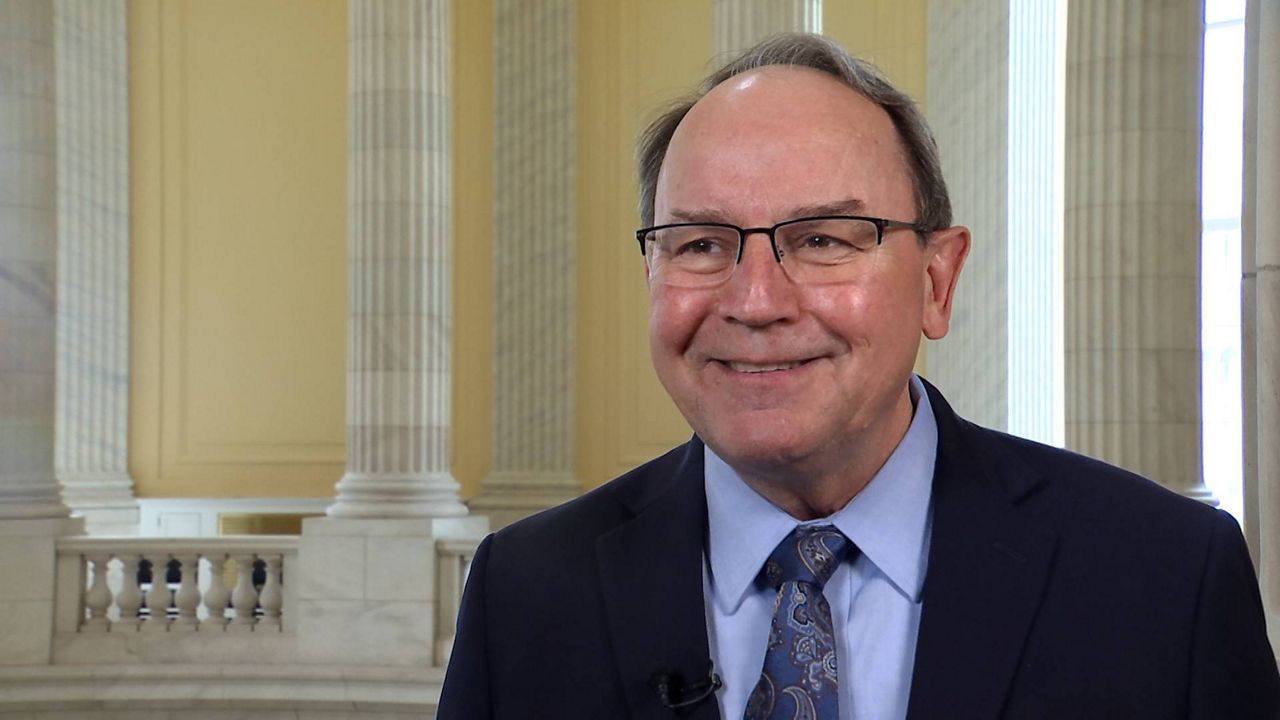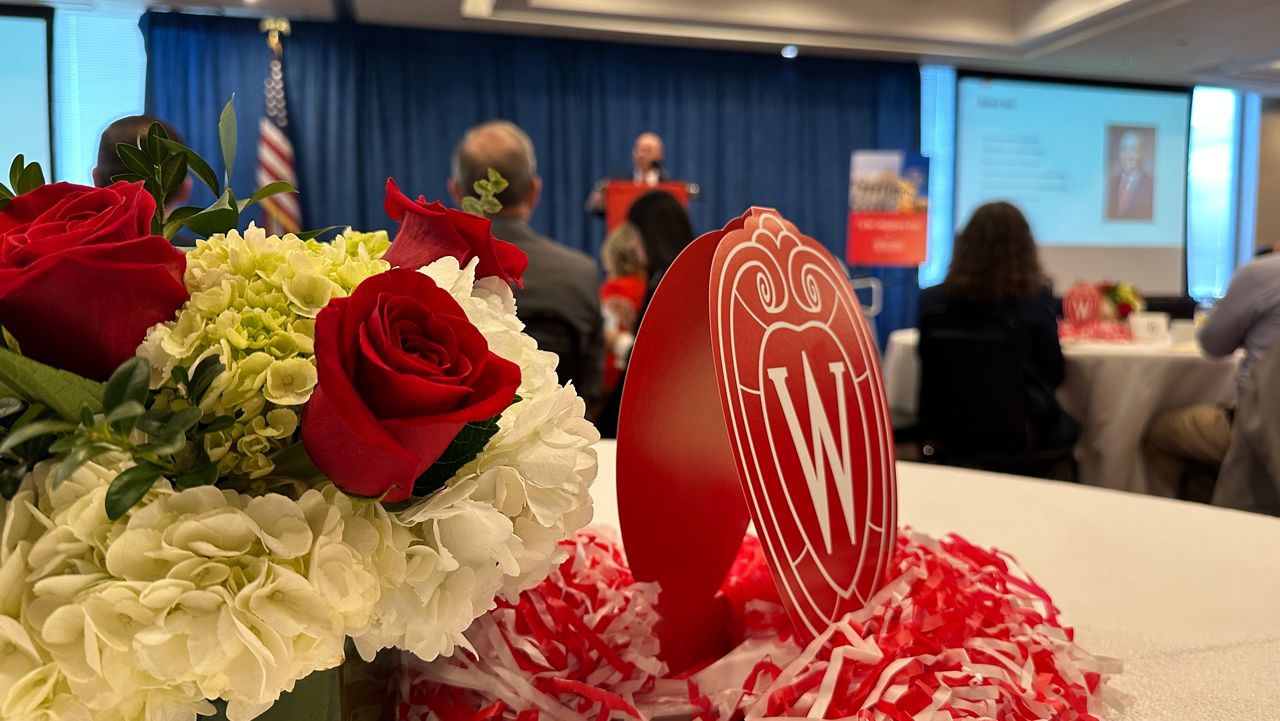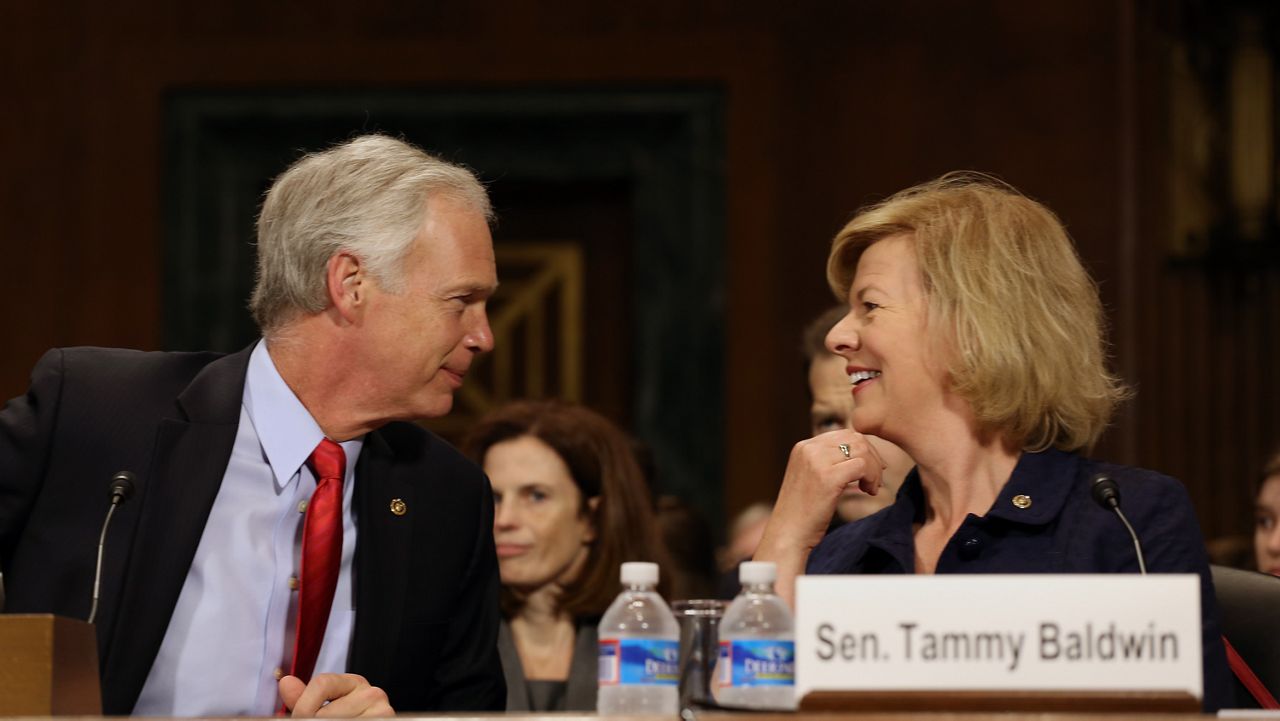WASHINGTON — Since he arrived on Capitol Hill 11 years ago, Congressman Mark Pocan has been an outspoken advocate for public schools, laborers, and most recently, a ceasefire in the Israel-Hamas war. A member of the high-profile appropriations committee, he also chairs the Congressional Equality Caucus, which advocates for the LGBTQ community.
“If you don't have a seat at the table, you're likely on the menu,” Pocan said. “That's very true, especially in a place like Washington. And I think having people who can share their life experiences and concerns and values is really helpful to making sure that we can fight for equality for everyone.”
Pocan is one of 12 LGBTQ members of Congress. The other 11 are Sens. Tammy Baldwin (WI), Laphonza Butler (CA), and Kyrsten Sinema (AZ) and Reps. Mark Takano (CA), Robert Garcia (CA), Angie Craig (MN), Sharice Davids (KS), Rep. Eric Sorensen (IL), Rep. Ritchie Torres (NY), Rep. Becca Balint (VT), and Rep. Chris Pappas (NH).
Pocan married his husband Phil in Toronto in 2006, nearly a decade before gay marriage was legal in the U.S.
Wisconsin’s Democratic Senator Tammy Baldwin was the first openly lesbian elected to Congress. When asked if he considers himself a trailblazer, Pocan pointed the finger to Baldwin.
“I think I followed her to the Assembly and then to Congress, so I think I’ve had someone making the trail a little bit, which is helpful," Pocan said with a smile. "But there’s still definitely again, in all offices, [underrepresentation] compared to the population itself. And in that sense, more people need to decide that they want to run for office and help represent their values and their community in public service.”
Baldwin was a champion of the Respect for Marriage Act, which President Joe Biden signed into law to grant nationwide protections to same-sex marriages.
“And public support certainly is up there for marriage equality and equality in general,” Pocan said. “But lately we've seen attacks, specifically from Republicans, on whether it be stigmatizing trans kids, whether it be going after things like Pride flags, or other things that they've been introducing in Congress, that we're having a slippage on equality.”
In 1982, Wisconsin made history as the first state to ban discrimination against gay and lesbian people. A Republican Governor, Lee Dreyfus, signed the legislation into law.
“The question that it really came down to is, should any human being be denied these privileges? Should any human being be treated differently than another just based on who they are? And no one could argue that question. I mean, that was really a brilliant spin on it. That got faith leadership involved; that got many Republican legislators involved,” said Michail Takach of the Wisconsin LGBTQ Project. “It inspired many states to follow, although the next state did not follow for nearly a decade.”
Takach is working on the Wisconsin First Project with Our Lives Media Group to preserve the state’s LGBTQ history and serve as an archival resource for researchers, historians, and journalists. Pocan helped secure the federal funding for the project.
Eight years before the Stonewall Rebellion, in which the LGBTQ community fought back when police raided a gay bar in New York City, Takach said there was an uprising in Milwaukee. He said this moment in 1961 is often left out of historical accounts of Wisconsin’s heritage in Pride, even though it “is commonly regarded as the trigger point for a chain reaction of events that led to this 1982 victory.”
“It really triggered a grand sense of community amongst people who had been told all along that they were the problem,” Takach said. “Some of the earliest gay liberation activists in the early 70s said there was just this grand moment of recognition that we had been lied to our whole lives, and that there were other people like us out there and now our job was to find them, connect with them and get stronger together. And I just, I don't know what that would have felt like, but that had to be a miraculous moment… We are, on August 5 of this year, installing a historic marker to recognize this in downtown Milwaukee.”
The ACLU of Wisconsin said an increase in anti-LGBTQ rhetoric poses a danger to members of the community.
“There has been an uptake of anti-LGBTQ violence, especially at trans and non-binary people, because these are the people that are being targeted in the media and by politicians,” said Jon McCray Jones, a policy analyst with the ACLU of Wisconsin. “I really want allies and corporate sponsors and politicians to remember this, that Pride is less about, ‘Let's make sure we put a rainbow flag in our office,’ and more about, ‘Let's make sure we protect trans people, because trans people are in danger right now.’”
June is Pride Month, an opportunity to recognize the LGBTQ community and push for equality. Several states still do not have laws explicitly prohibiting discrimination based on sexual orientation or gender identity, which is why Pocan said he is committed to passing the Equality Act, legislation to expand federal civil rights laws to protect LGBTQ people from discrimination in employment, housing and other areas.
“That would make sure that everyone no matter where you live in this country has equal rights and equal protections,” Pocan said.
With Republicans now controlling the House, the Equality Act has little chance of becoming law now. In the past, some Republicans have said the legislation undermines religious rights.
The measure will have a better chance if Democrats can win the House in November but it still must get through the Senate. Pocan said he will keep pushing for its passage.
“We’ve passed it twice when Democrats were in charge,” he said. “It will be passed someday. It's just a matter of when.”










